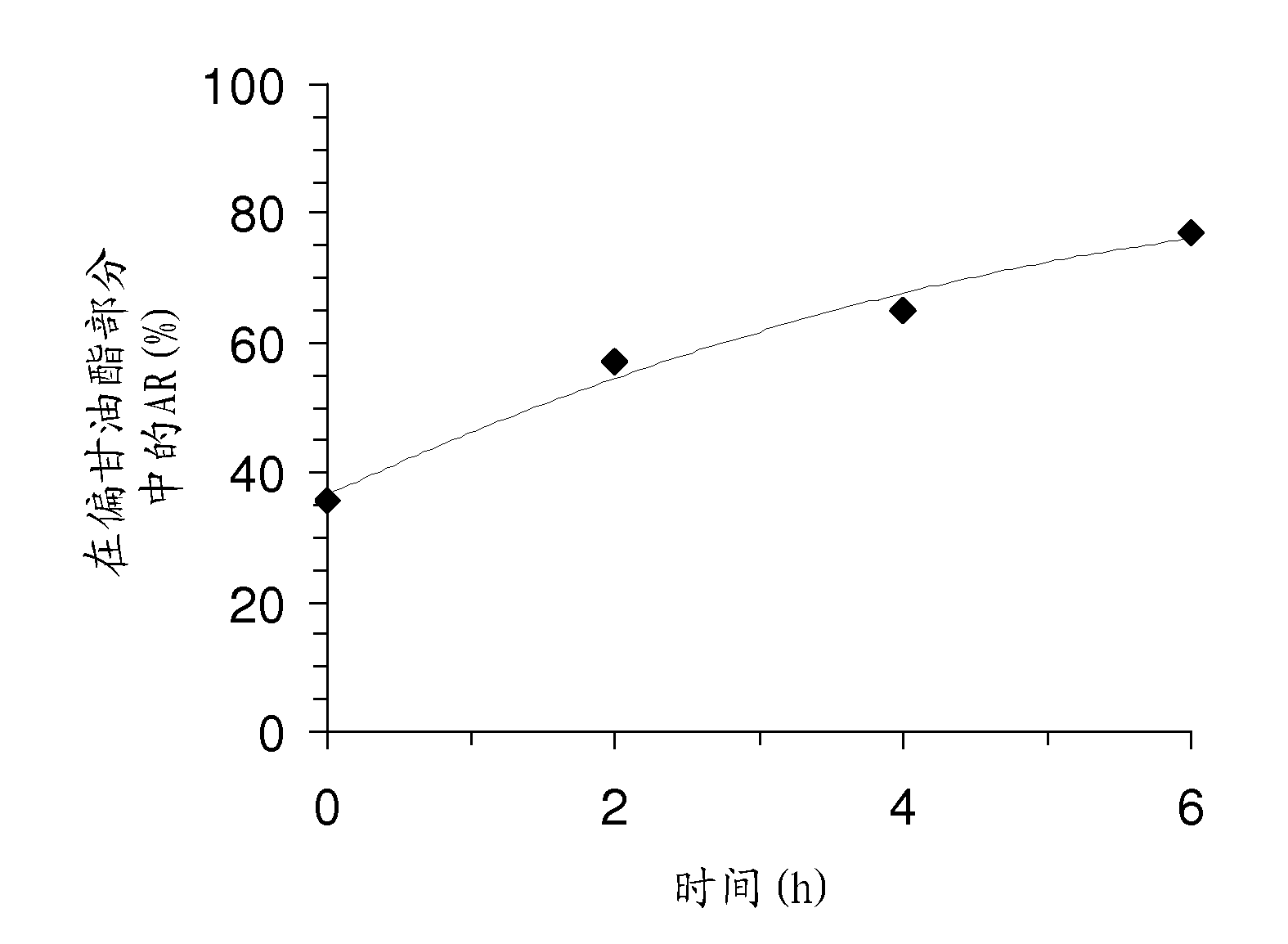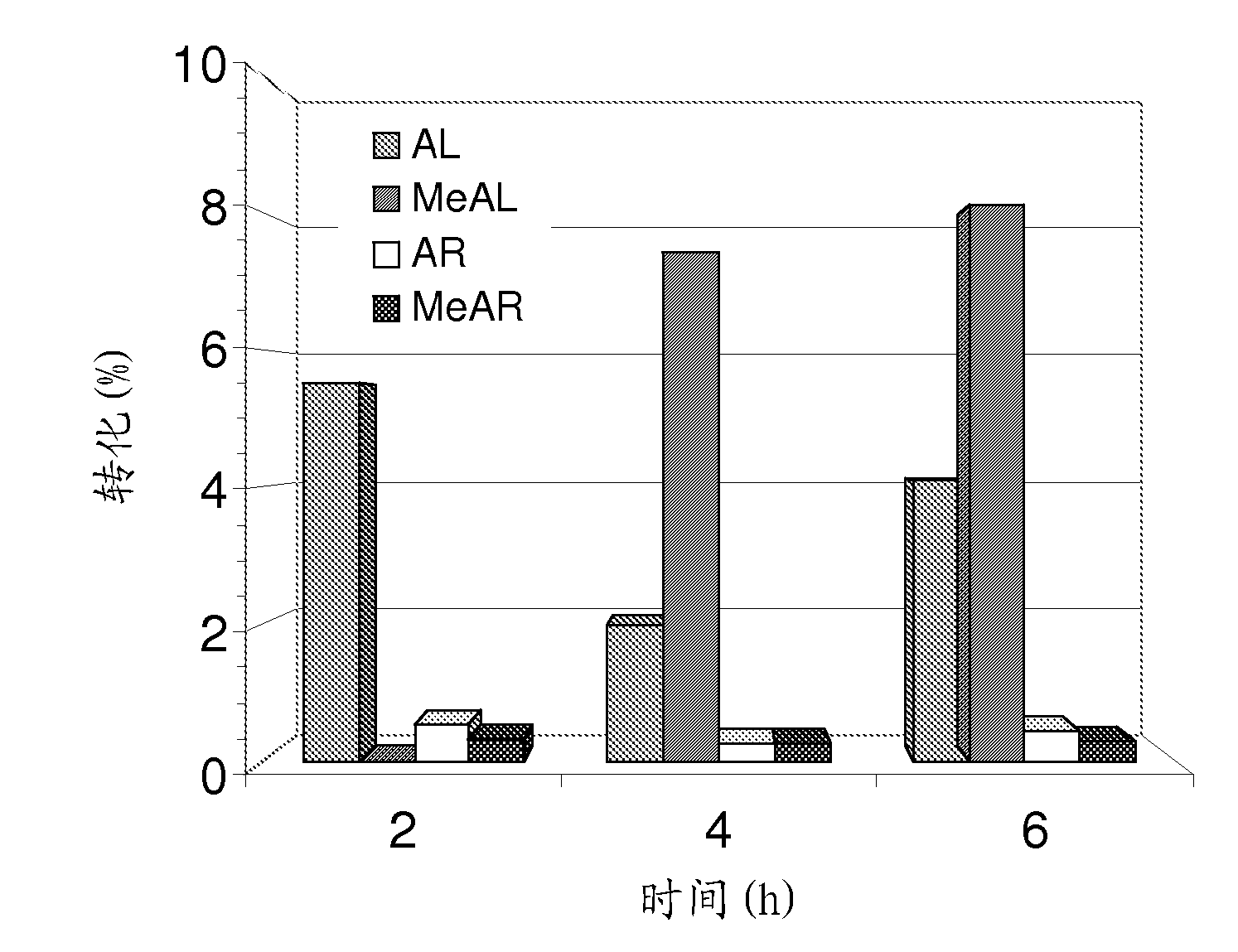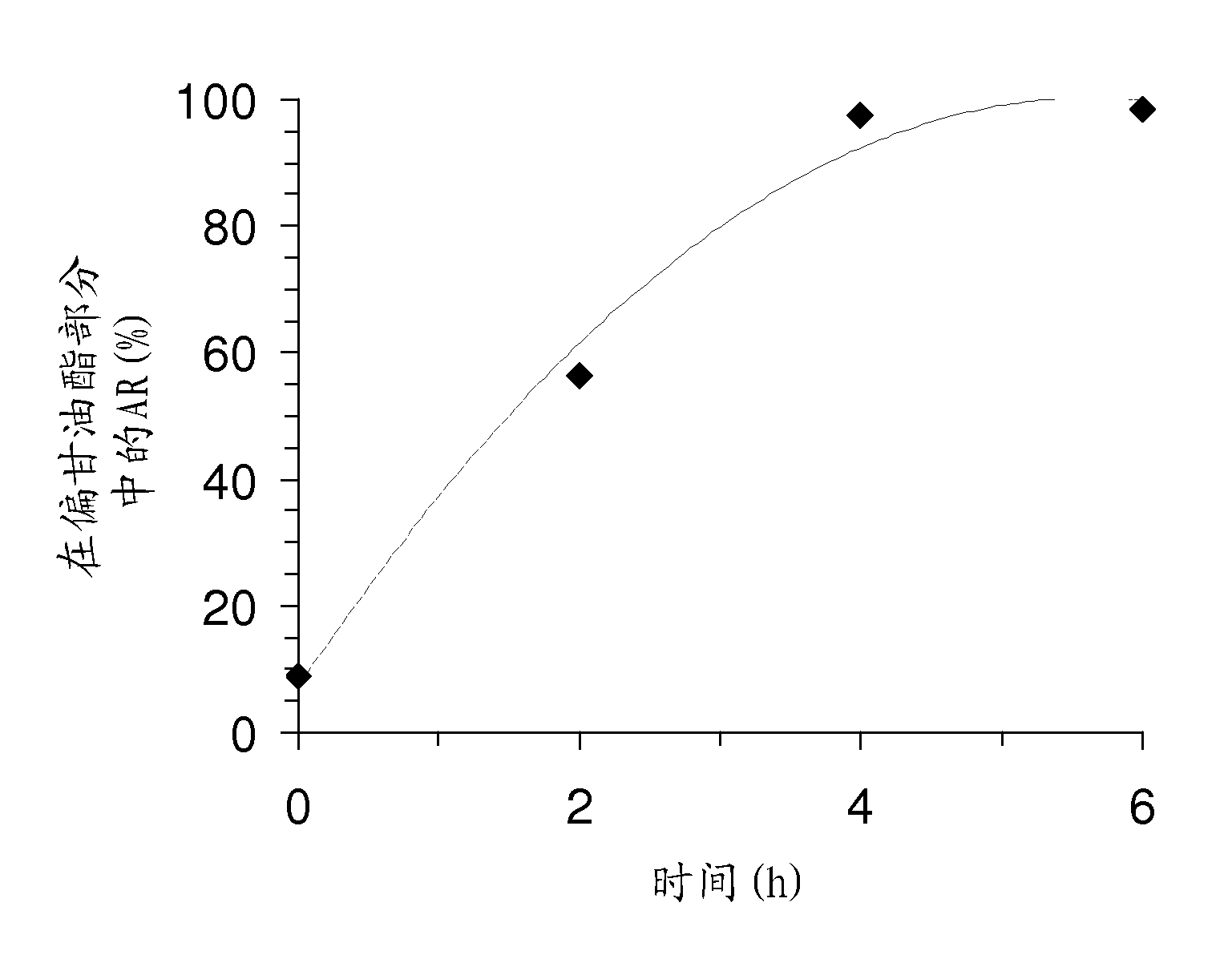Method for producing ricinoleic acid ester by selective enzymatic transesterification
A kind of technology of ricinoleic acid and castor oil, applied in the field of oil ester chemistry
- Summary
- Abstract
- Description
- Claims
- Application Information
AI Technical Summary
Problems solved by technology
Method used
Image
Examples
Embodiment Construction
[0032] The present invention relates to a process for the enzymatic transesterification of vegetable oils containing ricinoleic acid in connection with a chemical or enzymatic transesterification process in order to produce a fraction enriched in ricinoleic acid esters. Characteristically, the method uses an enzyme that exhibits "anti"-selectivity (also known as discrimination) for ricinoleic acid, i.e. it preferentially transesterifies the chain rather than ricinoleic acid . This effect is shown in particular on the two main fatty acids of ricinoleic acid other than castor oil: oleic acid and linoleic acid.
[0033] The method of enzymatic transesterification of the present invention is particularly suitable for oils "with low content" of ricinoleic acid, ie oils comprising less than 82% by weight of ricinoleic acid. This case is the case of castor oil with low ricinoleic acid content, or includes castor oil and derived from at least one other oleaginous (oleaginous), oleagi...
PUM
 Login to View More
Login to View More Abstract
Description
Claims
Application Information
 Login to View More
Login to View More - R&D
- Intellectual Property
- Life Sciences
- Materials
- Tech Scout
- Unparalleled Data Quality
- Higher Quality Content
- 60% Fewer Hallucinations
Browse by: Latest US Patents, China's latest patents, Technical Efficacy Thesaurus, Application Domain, Technology Topic, Popular Technical Reports.
© 2025 PatSnap. All rights reserved.Legal|Privacy policy|Modern Slavery Act Transparency Statement|Sitemap|About US| Contact US: help@patsnap.com



